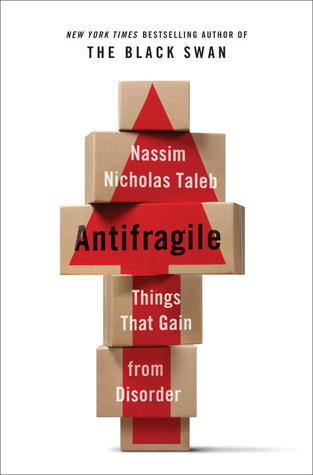
Anti-Diet: Reclaim Your Time, Money, Well-Being, and Happiness Through Intuitive Eating
by Christy Harrison
5 popular highlights from this book
Key Insights & Memorable Quotes
Below are the most popular and impactful highlights and quotes from Anti-Diet: Reclaim Your Time, Money, Well-Being, and Happiness Through Intuitive Eating:
“As feminist writer Naomi Wolf argues, the times in history when women have made the greatest political gains—getting the vote, gaining reproductive freedom, securing the right to work outside the home—have also been moments when standards for “ideal” beauty became significantly thinner and the pressure on women to adhere to those standards increased. Wolf explains that this serves both to distract women from their growing political power and to assuage the fears of people who don’t want the old patriarchal system to change—because if women are busy trying to shrink themselves, they won’t have the time or energy to shake things up. It’s hard to smash the patriarchy on an empty stomach, or with a head full of food and body concerns, and that’s exactly the point of diet culture.”
“Your health isn’t entirely within your control, either, despite what diet culture wants you to think. Health isn’t something you can wrestle into submission by sheer force; certain circumstances beyond our control—genetics, socioeconomic status, experiences of stigma, environmental exposures—can affect our health outcomes. We can’t permanently change our body size through food intake and exercise, the way we’ve been told we can, and the same is true of our health—which, of course, is not dependent on body size. That is, even if everyone ate the exact same things and moved their bodies in the exact same ways, we’d all still have different health outcomes because of genetic differences, experiences of poverty and discrimination, and even deprivation that our mothers experienced during pregnancy. Many things contribute to health, meaning it’s not all down to personal responsibility, the way diet culture wants us to believe—not by a long shot.”
“Disordered-eating behaviors don’t exist in a vacuum. If you start eating to soothe yourself after experiencing trauma, for example, you’re not doing that in a culture of “Do what you gotta do to get through the day, and also let me help you process your trauma.” No, you’re doing it in a culture of “OMG YOU’RE EATING SO MUCH, YOU’RE GONNA GAIN WEIGHT AND THAT’S ABSOLUTELY UNACCEPTABLE—YOU NEED TO LOSE WEIGHT, STAT! (And PS, trauma? What are you even talking about? Just suck it up and move on!)” So even when people start eating to self-soothe, without any connection to weight or body image, they eventually end up absorbing our culture’s toxic beliefs about food and bodies. In our society at this moment in history, it’s basically impossible not to fall into diet culture’s clutches at some point.”
“It keeps us too hungry, too fixated on our bodies, and too caught up in the minutiae of our eating regimens to focus our energies on changing the world.”
“These days, diet culture pushes the narrative that the reason we stigmatize larger bodies is because higher weight “causes” poor health. In reality, though, fat bodies were deemed “uncivilized” and therefore undesirable long before the medical and scientific communities began to label them a health risk around the turn of the twentieth century.24 Fatphobic beliefs pre-dated health arguments. In fact, through the end of the nineteenth century (as for most of human history) doctors held that larger bodies were healthier. Anyone who wanted to pursue weight loss had to go up against the medical establishment.”


